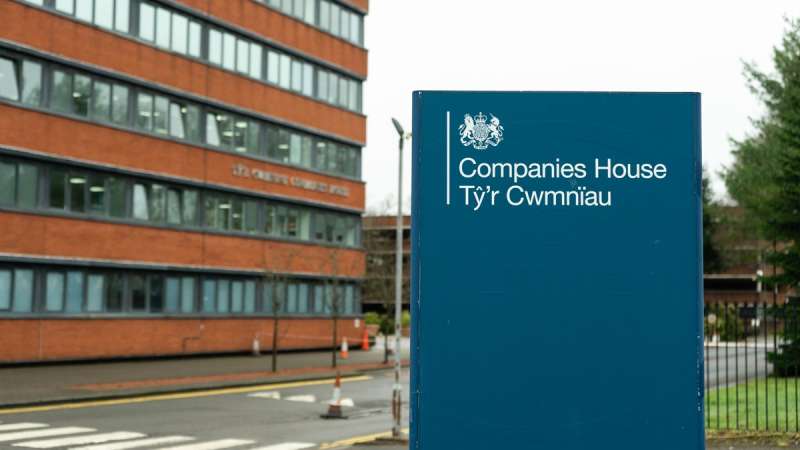Legal Advice For Not-For-Profit Organisations
We support not-for-profit organisations at every stage of their development with changing laws and complex regulations creating a greater need for ongoing and comprehensive legal advice.
Community Interest Companies
As well as advising on setting up new charities, we are also experienced in providing advice and assistance during the life of existing charities. As a firm, we can assist in the following areas:
- Trading arrangements and trading subsidiaries;
- Fundraising;
- Trustee duties;
- Commercial agreements, including commercial participation agreements;
- Mergers and acquisitions;
- Liaising with your tax advisers;
- Legacies and donations;
- Charity regulatory requirements;
- Appeals against decisions of the Charity Commission;
- Property;
- Employees and volunteers; and
- Probate litigation
What is a Charity?
A charity it not a legal form or structure. It is a status conferred on a group of individuals or an organisation because of the activities it carries out. A charity is defined in the Charities Act 2011 as an institution that is:
- Established exclusively for charitable purposes; and
- Subject to the control of the High Court.
Not all charities are registered with the Charity Commission as they may not reach the income threshold for registration (currently an income of £5,000 per annum) or they may be exempt. The main advantages of charitable status are:
- Availability of tax reliefs;
- Business rates reliefs;
- Access to funding; and
- Public recognition and support.
What are a charity’s charitable purposes?
Each purpose of the charity must be a charitable purpose. A charity cannot have some purposes that are charitable and some that are not. A charitable purpose is one that:
Falls within one or more of the descriptions of purposes capable of being charitable as set out in the Charities Act 2011, including:
- the prevention or relief of poverty;
- the advancement of education;
- the advancement of religion;
- the advancement of health or the saving of lives;
- the advancement of citizenship or community development;
- the advancement of the arts, culture, heritage or science;
- the advancement of amateur sport;
- the advancement of human rights, conflict resolution or reconciliation or the promotion of religious or racial harmony or equality and diversity;
- the advancement of environmental protection or improvement;
- the relief of those in need, by reason of youth, age, ill-health, disability, financial hardship or other disadvantage;
- the advancement of animal welfare;
- the promotion of the efficiency of the armed forces of the Crown or of the police, fire and rescue services or ambulance services;
- other purposes currently recognized as charitable and any new charitable purposes which are similar to another charitable purpose; and
- Is for the benefit of the public.
What are the key features of a charity?
Key features of a charity are:
- All assets must be applied in furtherance of its charitable purposes;
- Any profit must be applied for its charitable purposes;
- It must have charity trustees; and
- It must not exist for political purposes.
How is a charity governed?
Most charities have a written document setting out the rules of how it is governed, also known as its constitution. A charity’s constitution will depend on the type of legal structure adopted by the charity. The constitution should include a clear statement of the charity’s charitable purposes.
Type of charity
There are a number of legal structures which a charity may take, these are:
- Trusts;
- Unincorporated associations;
- Company limited by guarantee; and
- Charitable incorporated organisations (CIO’s).
If you would like legal advice in respect of setting up or operating any of the above types of charity or you would like help drafting the relevant constitutional document, please contact our Corporate Commercial department.
Unincorporated Associations
Unincorporated associations are a form of organisation usually adopted by members clubs, sports clubs, charities and other not-for-profit organisations. Unincorporated associations do not have a separate legal identity which can cause problems in terms of contracting with third parties, raising finance, owning property and the personal liability of members.
The key components of an unincorporated association are:
- They are made up of two or more persons with a common non-business purpose;
- There is a contractual relationship between those persons;
- A set of rules govern the conduct of the association; and
- The association is not temporary.
Tax and VAT
Unless it can fall within an exemption, unincorporated associations are primarily liable to pay tax even though it technically has no separate legal personality. An unincorporated association that provides facilities or advantages to members will be subject to VAT if it supplies taxable goods or services to its members in excess of the VAT registration threshold, unless it is subject to an exemption.
Governing Rules
It is important for unincorporated associations to be governed by a set of rules which are created by the membership and represents the terms of contract between the members. Rules can be oral but it is preferable that they are written down to avoid disputes between members.
Although there is no legal guidance or legislation dictating the contents of governing rules, the courts have started to scrutinise the legal effect of such rules and imply terms where the rules are unclear. Therefore, it is advised that unincorporated associations have a clear set of rules which deal with the fundamental areas of the association’s operation such as:
- Subscription and new members;
- Resignation, suspension and expulsion of members;
- Managing committee;
- Raising finance;
- Management of affairs;
- Dissolution; and
Charitable Incorporated Organisation (CIO)
A CIO is most attractive to medium sized unincorporated charities. A CIO is a corporate structure (similar to that of a company) designed specifically and exclusively for charities. The key characteristics of a CIO are:
- It is registered with the Charity Commission and entered into the register of charities;
- It does not need to be registered at Companies House;
- An exempt charity cannot be a CIO;
- It has a separate legal identity and can contract with third
- The liability of the CIO’s trustees and its members is limited;
- The liability of the CIO’s trustees and its members is limited;
- It is governed by a governing document which must be in the form specified by the Charity Commission or as near to that as possible;
- It must file an annual return with the Charity Commission;
- The charity accounting regime is less onerous than that applicable to companies;
- The reporting and accounting requirements of companies do not apply to CIOs; and
- There is limited transparency.
Community Interest Companies
A community interest company (CIC) is a limited liability company designed for social enterprises that want to use their profits and assets for the public good. A CIC has the specific aim of providing a benefit to a public community and must use its income, assets and profits for the community it is formed to serve.
CICs can be incorporated as a new company or converted from an existing company. They can be companies limited by shares or by guarantee so long as they continue to satisfy its community interest test. A CIC cannot be a political party, political campaigning organisation or a subsidiary of a political party or a political campaigning organisation. It cannot be a charitable company.
Charitable companies can convert to be CICs but they will lose their charitable status in doing so.
Key Features
The key features of a CIC are:
- It has to deliver an annual community interest company report with annual accounts to Companies House;
- Personal liability is limited;
- It has a constitution in the form of a memorandum and articles of association;
- It is regulated by the Regulator of Community Interest Companies; and
- It must comply with company law.
Asset Lock
A key feature of a CIC is that there is an asset lock. This means that a CIC cannot transfer its assets for less than market value unless transferring them to another CIC or a charity or if the transfer is for the benefit of the community it was set up to serve.
Community Interest Test
To satisfy the community interest test, a company must show that a reasonable person will consider that its activities are being carried on for the benefit of the community or a section of the community.
Our Experience with Not for Profit Organisations
We have many years of experience providing expert advice and assistance on a wide variety of matters to charities and other not-for-profit organisations. Recent examples of advising not for profit organisations include:
- Setting up a Charity;
- Incorporating a Charity;
- Advising on legal structures;
- Drafting and advising on constitutional documents; and
- Charity mergers
We have given advice to a number of local as well as national charities/not-for-profit organisations, which include:
- Local Chamber of Commerce;
- Local theatre; and
- The Ansar Finance Group
Why Work With Our Corporate Lawyers?
- We have been ranked as a Top Tier law firm by the Legal 500 for the last seven years.
- You will receive city-quality corporate law advice at regional prices.
- Price transparency - we provide our clients with an estimate at the outset of any piece of work with ongoing updates throughout the matter.
- Our 5 Corporate Partner led service ensures you receive the very best legal advice and commercially minded support.
- We have a large team with experience across a diverse variety of sectors, focused on achieving your objectives and hitting your deadlines.
- We are a full-service law firm operating from a one-site office, which means our teams communicate effectively and efficiently and our Corporate Lawyers can draw on support from other specialist lawyers such as property and employment lawyers.
- Our Corporate Solicitors use the latest technology to ensure that we are working as efficiently as possible and that geographical distance is no bar to us from providing you excellent client service.
- We were the winners of ‘Corporate Team of the Year 2021’ at the Manchester Legal Awards.
- Take a look at the Myerson Promise for further benefits of working with us here.
Testimonials
Meet Our Specialists
Home-grown or recruited from national, regional or City firms. Our specialists are experts in their fields and respected by their peers.
Contact Our Experts
You can contact our lawyers below if you have any more questions or want more information:






